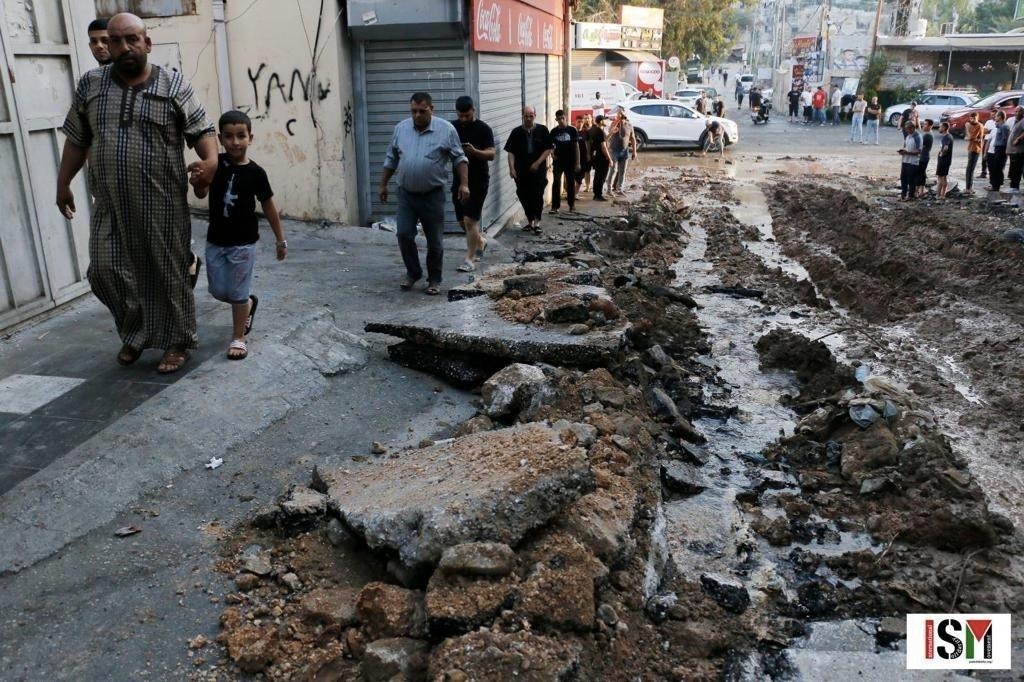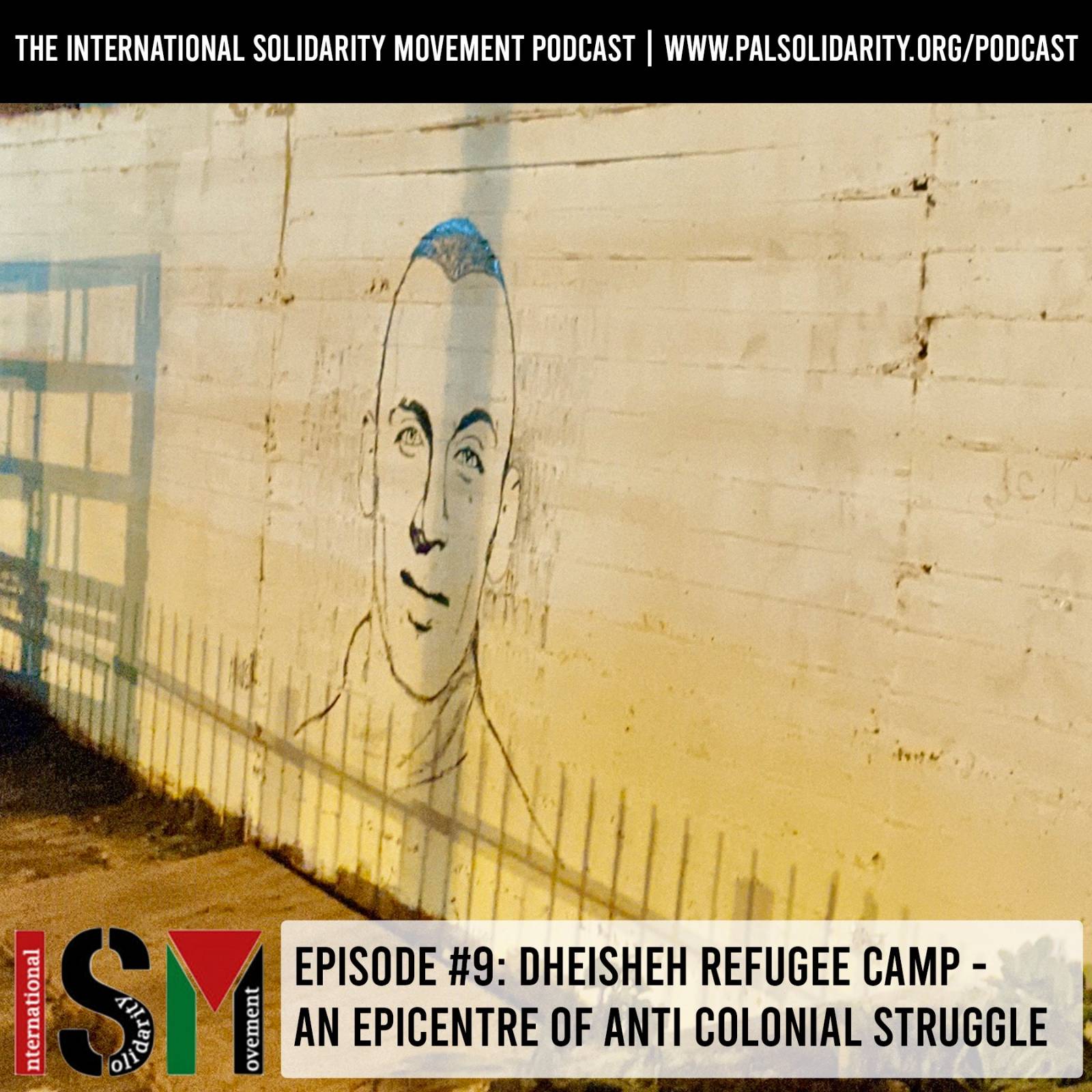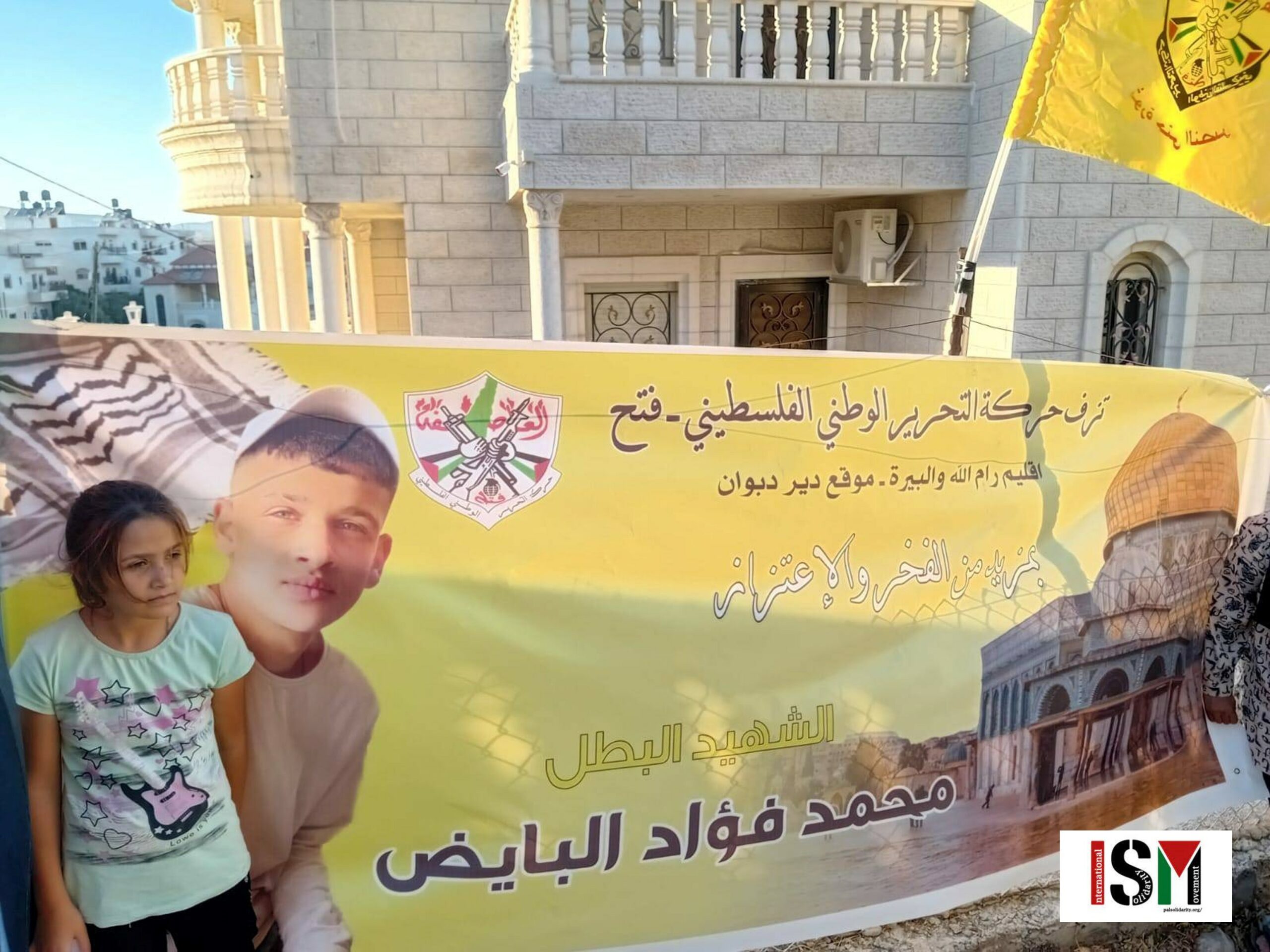Category: Reports
-
Palestinian child looses leg after Israeli occupation invades Nur Shams Camp
On Monday July 24, 16 year old Mohammed Zendiq lost his leg during the invasion of Nur Shams refugee camp, near Tulkarem, by the Israeli Occupation Forces. In the 4 hour long invasion, the IOF accompanied by a military bulldozer caused serious material damage to the camp’s main streets and infrastructures as well as private…
-
International Solidarity Movement Podcast episode 9: Dheisheh Refugee Camp – an epicentre of anticolonial resistance
In this episode Tom and Hazel speak to Sireen Khudairy, who is a resident of Dheisheh refugee camp in Bethlehem. For many years, Dheisheh has been a centre of determined resistance against the occupation. We spoke to Sireen in December 2022. And she told us about life and resistance in Dheisheh, and also in the…
-
Israeli Forces Kill Unarmed Teenager in Umsafa
On Friday 23rd July, Israeli occupation forces fatally shot Mohammed Fouad Atta Bayyed, 17, at a demonstration in Um Safa, a village north of Ramallah which, for the past few months, has been marked by increased settler violence and encroachment. With at least hundreds of Dunams of land confiscated by the Israelis for the purpose…



